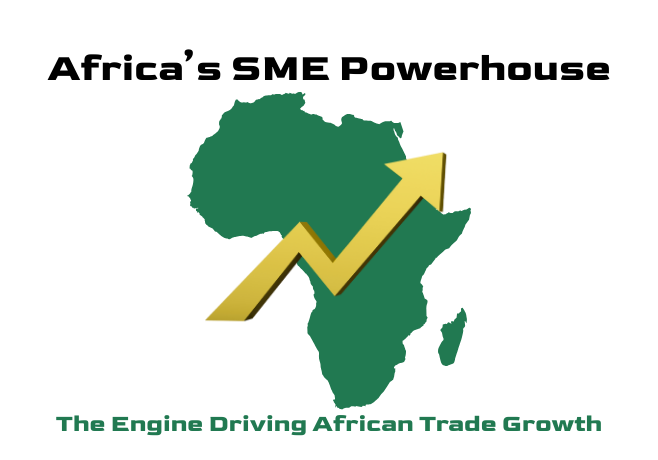
Africa’s SME Powerhouse: The Engine Driving African Trade Growth

Published by: AMBESA.com
Small and Medium Enterprises (SMEs) are the undisputed backbone of Africa’s economy. From local retail shops in Accra to manufacturing hubs in Nairobi, these businesses are responsible for up to 90% of all enterprises in Africa, according to the African Development Bank (Source 1).
In this first edition of our Top 10 B2B Insights series, we explore the true scale and significance of SMEs in Africa, the challenges they face, and how digital B2B platforms like AMBESA.com can transform their future.
Africa’s SMEs in Numbers
- 90% of businesses in Africa are SMEs (Source: African Development Bank)
- SMEs employ over 80% of the workforce in some countries (Source: UNCTAD)
- Top SME ecosystems: Nigeria, Kenya, Egypt, and South Africa
- Women-led SMEs are increasing but remain under-supported (Source: IFC)
These figures illustrate not only the dominance but also the potential of SMEs across the continent.
Key Challenges Facing SMEs in Africa
Despite their importance, African SMEs face several persistent issues:
1. Informality and Under-Financing
More than 60% of SMEs operate informally (Source: ILO), which disqualifies them from formal financing, tax incentives, and market protections.
2. Low Digital Adoption
Fewer than 35% of SMEs are digitized (Source: GSMA 2023 Mobile Economy Report). This limits their reach to local markets and hinders e-commerce participation.
3. Limited Access to Credit
Only 17% of African SMEs have access to bank loans or formal credit facilities (Source: World Bank SME Finance Forum).
4. High Failure Rate
The failure rate for African SMEs within the first 3 years exceeds 50%, largely due to a lack of business support, market access, and capital (Source: UNCTAD).
The Rise of Women-Led SMEs
The International Finance Corporation (IFC) reports that women in sub-Saharan Africa own about one-third of all SMEs, with strong representation in trade and services.
However, they face greater funding challenges, often receiving less than half the financing that male counterpart's access, and frequently lacking visibility in procurement systems.
Emerging SME-Friendly Policies
Governments are responding. Some noteworthy developments include:
- Ghana’s NBSSI: National Board for Small Scale Industries, now transformed into the Ghana Enterprises Agency.
- Kenya’s Ajira Digital Program: Upskilling youth and SMEs to access digital markets.
- South Africa’s SEDA: Small Enterprise Development Agency offering incubation and financing.
These policies are promising - but implementation and access remain inconsistent.
How B2B Platforms Like AMBESA.com Solve These Challenges
At AMBESA.com, we recognize the need for a single platform that helps African SMEs grow, trade, and scale - digitally.
What AMBESA.com Offers SMEs:
Feature | Benefit for SMEs |
Verified B2B Listings | Builds trust and discoverability across borders |
Smart Logistics | Simplifies cross-border fulfillment |
Digital Payments | Reduces risk and ensures speed |
Trade Matching | Connects vendors with real-time buyer demand |
Affordable Plans | Designed for small businesses and startups |
AMBESA.com is more than a marketplace - it's a growth platform built for Africa.
Why Supporting SMEs Is Africa’s Best Bet
SMEs represent a huge opportunity for:
- Job creation
- Export growth
- Intra-African trade (AfCFTA alignment)
- Sustainable innovation
In short, supporting SMEs is supporting Africa’s long-term economic resilience.
It's Time to Empower Africa's Backbone
If you're a policymaker, buyer, investor, or service provider, it’s time to put SMEs at the center of your strategy. And if you're an SME looking to scale, join AMBESA.com today and start trading smarter.
Join the Movement:
Sources:
- African Development Bank - SME Statistics
- UNCTAD - Africa Trade & SMEs Report 2022
- World Bank SME Finance Forum
- GSMA Mobile Economy Africa Report 2023
- International Finance Corporation (IFC)
- ILO Informal Economy Statistics
- Local Government SME Programs (Ghana, Kenya, South Africa)
No posts found
Write a review
 Sign Up
Sign Up